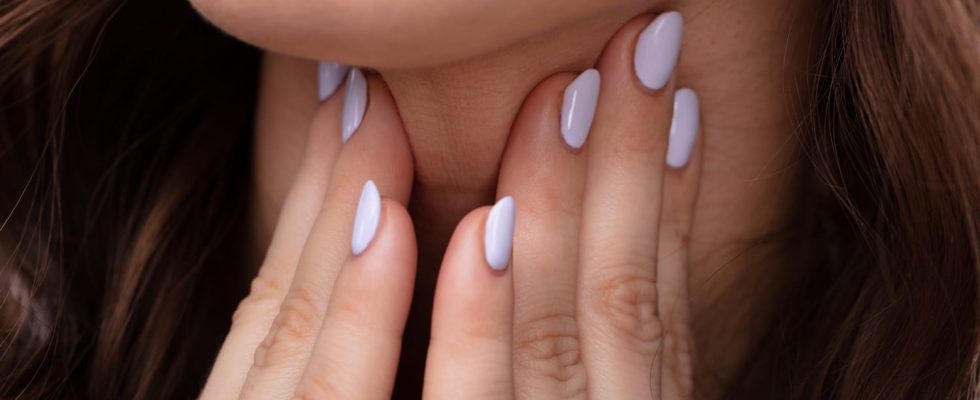Parotitis is an inflammation of the parotid gland, the largest of the salivary glands, located below and in front of each ear. The more common form is viral during mumps. What are its causes ? His symptoms? His treatments? Answers.
Parotitis is an infection that affects the parotid gland, a fairly large salivary gland located in each cheek, below the ears. It can evolve acutely (a few days) or chronically (several months). Parotitis of viral origin is most often bilateral since they come from a general cause. Bacterial infections are most often caused by a local factor such as lithiasis in particular (formation and migration of salivary “pebbles” in the excretory tract of saliva).
Mumps parotitis, also known as “mumps”, is an often infantile viral disease, caused by the mumps virus which is transmitted by the airways, without compulsory contact, mainly by coughing. The first symptoms are a unilateral or bilateral parotitis but the virus can settle in other organs such as the ovaries, the testicles (which can cause sterility), the pancreas, the kidney, even the central nervous system, causing meningitis or encephalitis.
The infection usually lasts 8 to 10 days after a very long incubation period of 3 weeks.
Parotitis is manifested by swelling (increase in volume) of the parotid gland. It is responsible for severe pain. The area becomes warmer, and sometimes red. A feeling of dry mouth and a slight fever may accompany these symptoms. Chewing is usually painful. Most of the time, the attack concerns the two parotid glands, but the symptoms can appear only on one side.
Acute parotitis can be caused by a viral (mumps, for example) or bacterial (streptococcus, staphylococcus, etc.) infection. Chronic parotitis is most often linked to parotid lithiasis which blocks the evacuation of saliva, or to parotid lithiasis. The risk of bacterial superinfection is more frequent in this case.
“Faced with the symptoms of parotitis, it is important to consult a doctor quickly to avoid any complications, and also to ensure that it is not a more severe pathology, such as an obstruction of the salivary duct by a lithiasis, which is however rarer” advises Dr. Claire Lewandowski, a doctor specializing in general medicine. If you notice a lump in your cheek and under your ear, with pain or fever, it is essential to consult the attending physician or an ENT doctor as soon as possible.
Symptoms are generally sufficient to demonstrate parotitis, although an ultrasound or other additional examinations such as an X-ray for example (to look for salivary lithiasis) may be necessary to confirm it.
There is no specific treatment for parotitis of viral origin (mumps type), apart from taking analgesics to calm the pain. In case of parotitis of bacterial origin, taking oral antibiotics, combined with antiseptic mouthwashes, is an effective solution. Chronic parotitis can also be treated with antibiotics. Surgical treatment can be proposed, in particular in the case of lithiasis.
“Several homeopathic remedies are possible depending on the symptoms or the origin of the pathology, but they must always be administered after consulting the doctor. The treatment is generally done with Arsenicum Album at a dose which will be recommended by the homeopath depending on the symptoms.Myrsiteca Sebirefa 4 CH (a daily intake of 2 granules for 3 days) is rather recommended in the event of an acute condition and Mercurius Solubilis or Mercurius Corrosivus 9 CH (3 daily intakes of 5 granules) in case of chronic disease. Bryonia Alba dilution 9 CH (3 daily doses of 5 granules) relieves pain which intensifies with jaw movements” advises Dr. Lewandowski.
